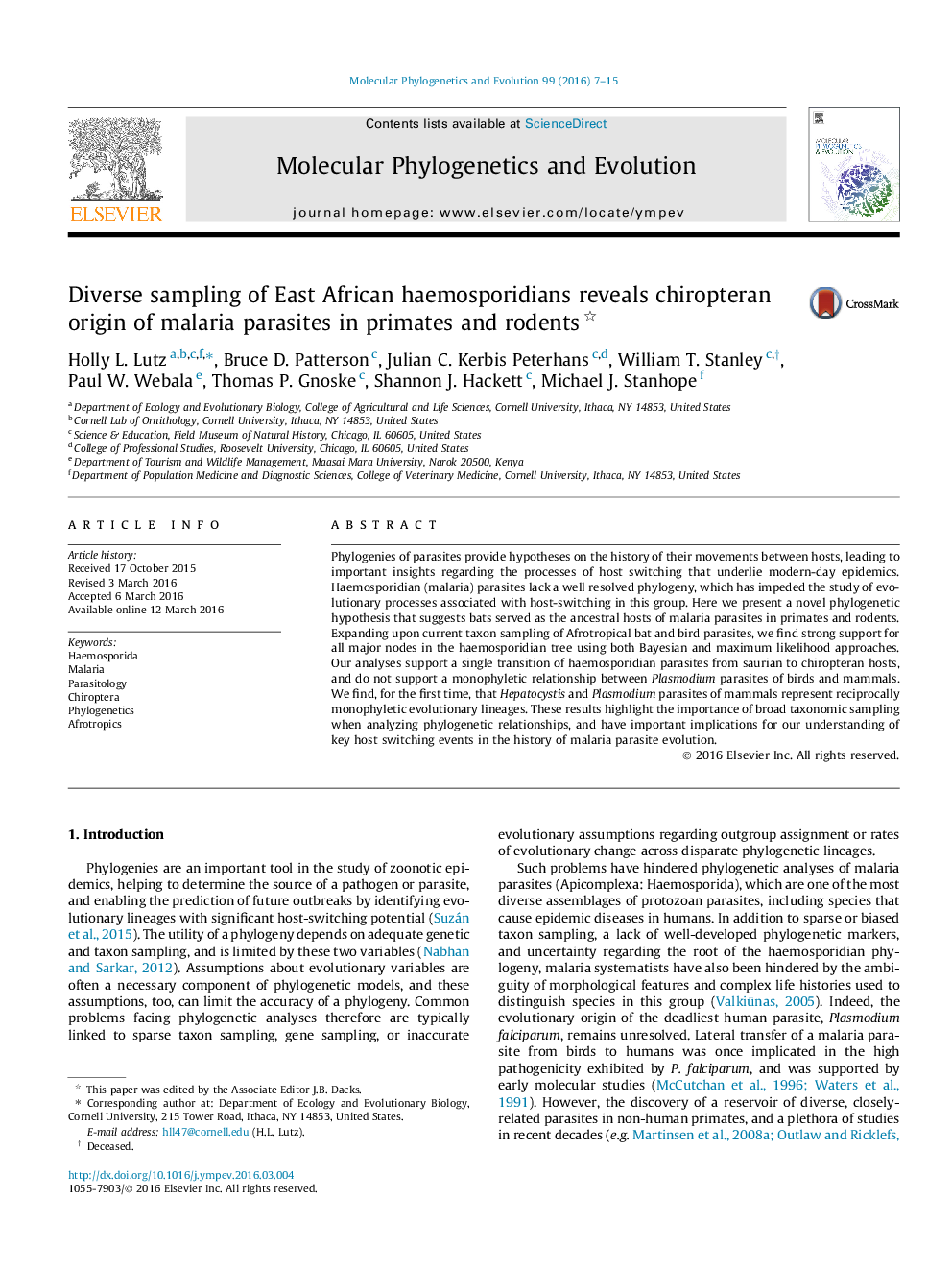| Article ID | Journal | Published Year | Pages | File Type |
|---|---|---|---|---|
| 5918513 | Molecular Phylogenetics and Evolution | 2016 | 9 Pages |
â¢Broad sampling of East African bats recovers diverse haemosporidian parasite lineages.â¢Combining diverse saurian and mammalian haemosporidians produces novel phylogeny.â¢Phylogeny supports bats as the ancestral hosts of all extant mammalian haemosporidians.
Phylogenies of parasites provide hypotheses on the history of their movements between hosts, leading to important insights regarding the processes of host switching that underlie modern-day epidemics. Haemosporidian (malaria) parasites lack a well resolved phylogeny, which has impeded the study of evolutionary processes associated with host-switching in this group. Here we present a novel phylogenetic hypothesis that suggests bats served as the ancestral hosts of malaria parasites in primates and rodents. Expanding upon current taxon sampling of Afrotropical bat and bird parasites, we find strong support for all major nodes in the haemosporidian tree using both Bayesian and maximum likelihood approaches. Our analyses support a single transition of haemosporidian parasites from saurian to chiropteran hosts, and do not support a monophyletic relationship between Plasmodium parasites of birds and mammals. We find, for the first time, that Hepatocystis and Plasmodium parasites of mammals represent reciprocally monophyletic evolutionary lineages. These results highlight the importance of broad taxonomic sampling when analyzing phylogenetic relationships, and have important implications for our understanding of key host switching events in the history of malaria parasite evolution.
Graphical abstractDownload high-res image (134KB)Download full-size image
